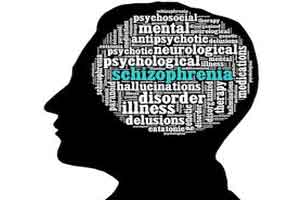- Home
- Medical news & Guidelines
- Anesthesiology
- Cardiology and CTVS
- Critical Care
- Dentistry
- Dermatology
- Diabetes and Endocrinology
- ENT
- Gastroenterology
- Medicine
- Nephrology
- Neurology
- Obstretics-Gynaecology
- Oncology
- Ophthalmology
- Orthopaedics
- Pediatrics-Neonatology
- Psychiatry
- Pulmonology
- Radiology
- Surgery
- Urology
- Laboratory Medicine
- Diet
- Nursing
- Paramedical
- Physiotherapy
- Health news
- Fact Check
- Bone Health Fact Check
- Brain Health Fact Check
- Cancer Related Fact Check
- Child Care Fact Check
- Dental and oral health fact check
- Diabetes and metabolic health fact check
- Diet and Nutrition Fact Check
- Eye and ENT Care Fact Check
- Fitness fact check
- Gut health fact check
- Heart health fact check
- Kidney health fact check
- Medical education fact check
- Men's health fact check
- Respiratory fact check
- Skin and hair care fact check
- Vaccine and Immunization fact check
- Women's health fact check
- AYUSH
- State News
- Andaman and Nicobar Islands
- Andhra Pradesh
- Arunachal Pradesh
- Assam
- Bihar
- Chandigarh
- Chattisgarh
- Dadra and Nagar Haveli
- Daman and Diu
- Delhi
- Goa
- Gujarat
- Haryana
- Himachal Pradesh
- Jammu & Kashmir
- Jharkhand
- Karnataka
- Kerala
- Ladakh
- Lakshadweep
- Madhya Pradesh
- Maharashtra
- Manipur
- Meghalaya
- Mizoram
- Nagaland
- Odisha
- Puducherry
- Punjab
- Rajasthan
- Sikkim
- Tamil Nadu
- Telangana
- Tripura
- Uttar Pradesh
- Uttrakhand
- West Bengal
- Medical Education
- Industry
Risk for Schizophrenia May Start Within One Week After Birth: Study

New study finds that functions of DISC – 1 gene during first week of brain development affect a person’s likelihood to develop schizophrenia later on. This suggests that interventions to prevent the disease may have to be given very early in life.
Past studies have proved conclusively that mutations in DISC – 1 (Disrupted in Schizophrenia) gene is a high risk factor for mental illnesses like schizophrenia, major clinical depression and bipolar disorder.
"We believe that DISC-1 is schizophrenia's Rosetta Stone gene and could hold the master key to help us unlock our understanding of the role played by all risk genes involved in the disease," said lead researcher Kevin Fox, professor at Cardiff University in Britain.
"We have identified a critical period during brain development that directs us to test whether other schizophrenia risk genes affecting different regions of the brain create their malfunction during their own critical period," Fox noted.
Through a series of mice experiments, researchers noted a critical seven day window period immediately after birth during which the gene needed to bind to two proteins ‘Lis’ and ‘Nudel. Failure to bind resulted in diminished plasticity of neurons in later life.
"The challenge ahead lies in finding a way of treating people during this critical period or in finding ways of reversing the problem during adulthood by returning plasticity to the brain," Fox noted.
"This, we hope, could one day help to prevent the manifestation or recurrence of schizophrenia symptoms altogether," Fox said.
The study was published in the journal Science.
Past studies have proved conclusively that mutations in DISC – 1 (Disrupted in Schizophrenia) gene is a high risk factor for mental illnesses like schizophrenia, major clinical depression and bipolar disorder.
"We believe that DISC-1 is schizophrenia's Rosetta Stone gene and could hold the master key to help us unlock our understanding of the role played by all risk genes involved in the disease," said lead researcher Kevin Fox, professor at Cardiff University in Britain.
"We have identified a critical period during brain development that directs us to test whether other schizophrenia risk genes affecting different regions of the brain create their malfunction during their own critical period," Fox noted.
Through a series of mice experiments, researchers noted a critical seven day window period immediately after birth during which the gene needed to bind to two proteins ‘Lis’ and ‘Nudel. Failure to bind resulted in diminished plasticity of neurons in later life.
"The challenge ahead lies in finding a way of treating people during this critical period or in finding ways of reversing the problem during adulthood by returning plasticity to the brain," Fox noted.
"This, we hope, could one day help to prevent the manifestation or recurrence of schizophrenia symptoms altogether," Fox said.
The study was published in the journal Science.
Next Story


